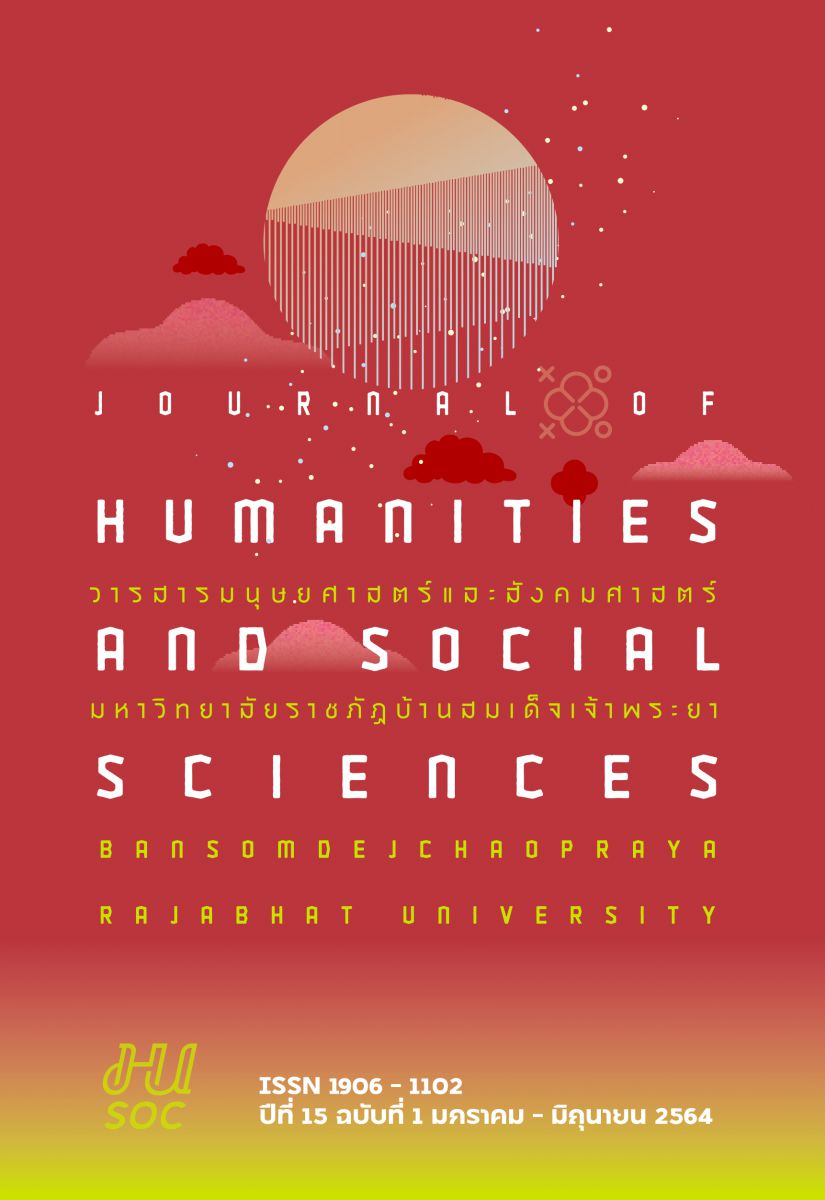Outdoor Learning Activities for Children
Keywords:
Outdoor Education, Outdoor Experiential Learning, Outdoor Learning ActivitiesAbstract
Outdoor experiential learning is cross-curricular learning and interdisciplinarity which connects learning experiences in a classroom with other sources outside. It offers an opportunity for students to understand concepts beyond the norms of the classroom such as from the community, natural environment, and other locations of topics being studied. Outdoor learning activities also promote students’ learning experiences and various essential skills including observation skills, thinking skills, problem-solving skills, communication, and collaboration. Besides, they inculcate the awareness of nature and environmental conservation.
References
สำนักงานเลขาธิการสภาการศึกษา. (2560). แผนการศึกษาแห่งชาติพ.ศ. 2560 - พ.ศ. 2579. กรุงเทพฯ: พริกหวานกราฟฟิค.
อรนุช ลิมตศิริ. (2563). การบูรณาการหน่วยการเรียนเรื่อง “กล้วย”. กรุงเทพฯ: ภาควิชาหลักสูตรและการสอน คณะศึกษาศาสตร์ มหาวิทยาลัยรามคำแหง
Behrendt. M. & Franklin. T. (2014). A review of research on school field trips and their value in education. International journal of Environmental & Science Education, 9, 235-245.
Brookes, A. (2004). Can outdoor education be dispensed with? A critical review of some common rationales for outdoor education. Paper presented at Connections and Disconnections: Examining the reality and rhetoric. International perspectives on outdoor education theory and practice, Australia: La Trobe University Bendigo, Bunting.
Camille J. (2006). Interdisciplinary teaching through outdoor education. Champaign, IL: Human Kinetics.
Cooper, G. (2010, Spring). Outdoor Learning: environmental and sustainability-Seeing the big picture. Horizons. 49, 4-8.
Dewey, J. (1938). Experience and education. New York: Touchstore.
Donaldson, G. & Donaldson, L. (1958). Outdoor education: A definition. Journal of Physical Education: Recreation & Dance, 29(17), 17-63.
Dowling, H. J. (1978). Outdoor education: Why outdoor education. New York: Destandes.
Freebery, W., & Taylor, I. (1963). Programme in outdoor education. Minneapolis, MN: The Burgess.
Gilberston. K., & others. (2006). Outdoor education methods and strategies. Champaign: Human Kinetics.
Hammerman, D.R., Hammerman, W.M. & Hammerman, E.L. (1994). Teaching in the outdoor. America: CL Interstate.
Hammerman, D.R., Hammerman, W.M. & Hammerman, E.L. (2001). Teaching in the outdoor. Danville IL. Inte.
Higgins, P., Loynes, C. & Crowther, N. (1997). A Guide for Outdoor Education in Scotland. Penrith: Adventure Education.
Hungerford, H.R. & Volk, T.L. (2013). Changing learner behavior through environmental education. Retrieved 20 March 2018, from ttp://doi.org/10.1080/00958964.1990.10753743.
Leather. M & Porter, S. (2006). An outdoor Evolution: Changing name, changing contexts, constant values. Shaping the outdoor profession through Higher Education Creative Diversity in Outdoor Studies Courses in Higher Education in the UK.
Humberstone, B & Brown, H. Editors.Martin. P. (2001). Key issues in the industry: towards the Summit in Education Outdoors-Our sense of Place: 12th National Outdoor Education Conference. Conference proceedings. Victory. Australia.
Priest, S. (1986). Redefining outdoor education: A matter of many relationships. Journal of Environmental Education, 17(3). 13-15.
Priest, S. (1990). The semantics of adventure education. In Adventure education. State College. PA: Venture.
Rickinson, M, et al. (2004). A Review of Research on Outdoor Learning National Foundation for Educational Research and King’s College London. London: FSC.
Sharp, L.B. (1973). Basic Consideration in outdoor and camping education. New York: The Bulletin of The National Association of Secondary School Principals.
Smith, J.W., et al. (n.d.). Outdoor education. (2nd ed.). Englewood cliffs, New Jersey: Prentice-Hall.
Downloads
Published
How to Cite
Issue
Section
License
Copyright (c) 2021 Faculty of Humanities and Social Sciences Bansomdejchaopraya Rajabhat University

This work is licensed under a Creative Commons Attribution-NonCommercial-NoDerivatives 4.0 International License.




